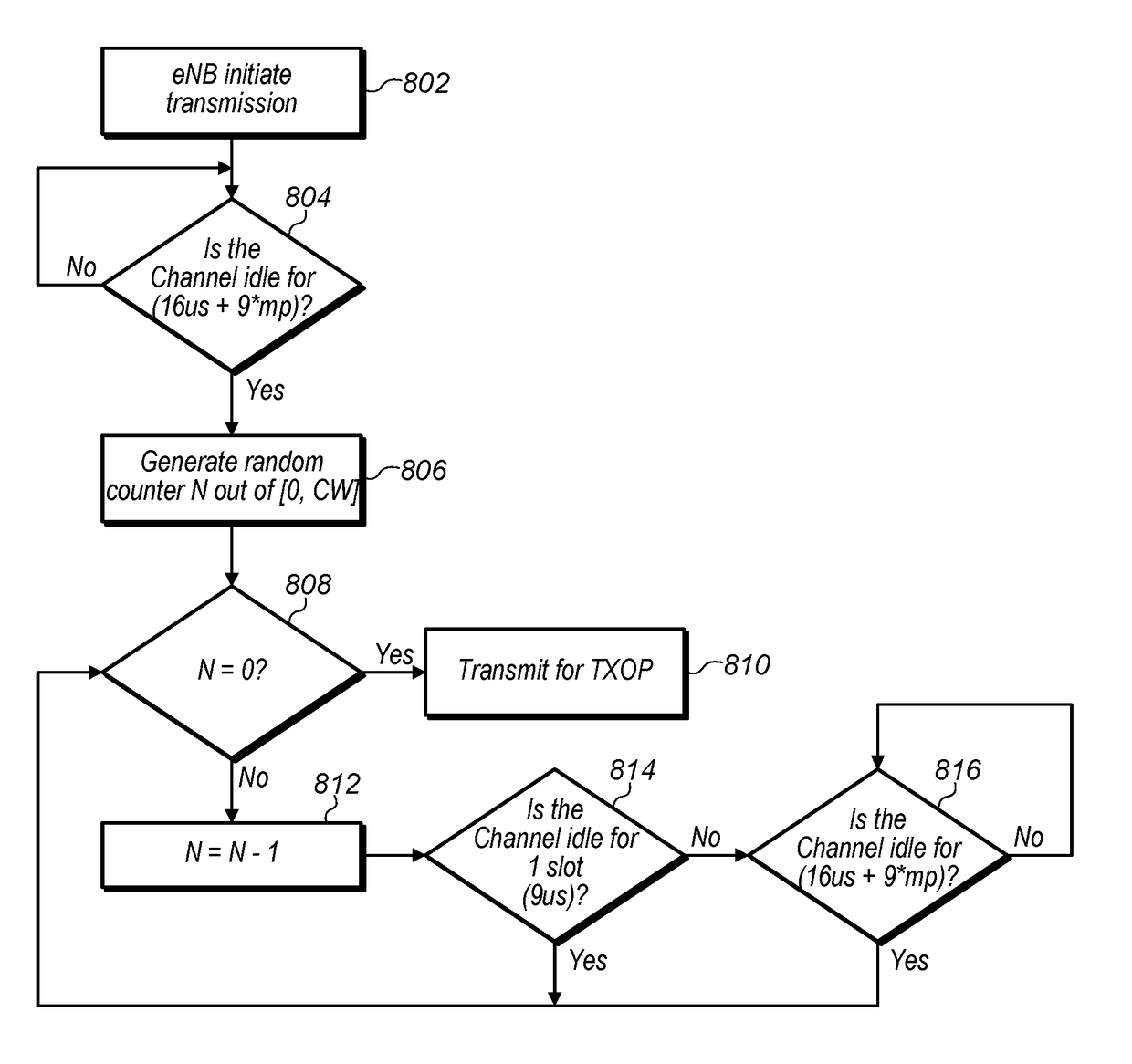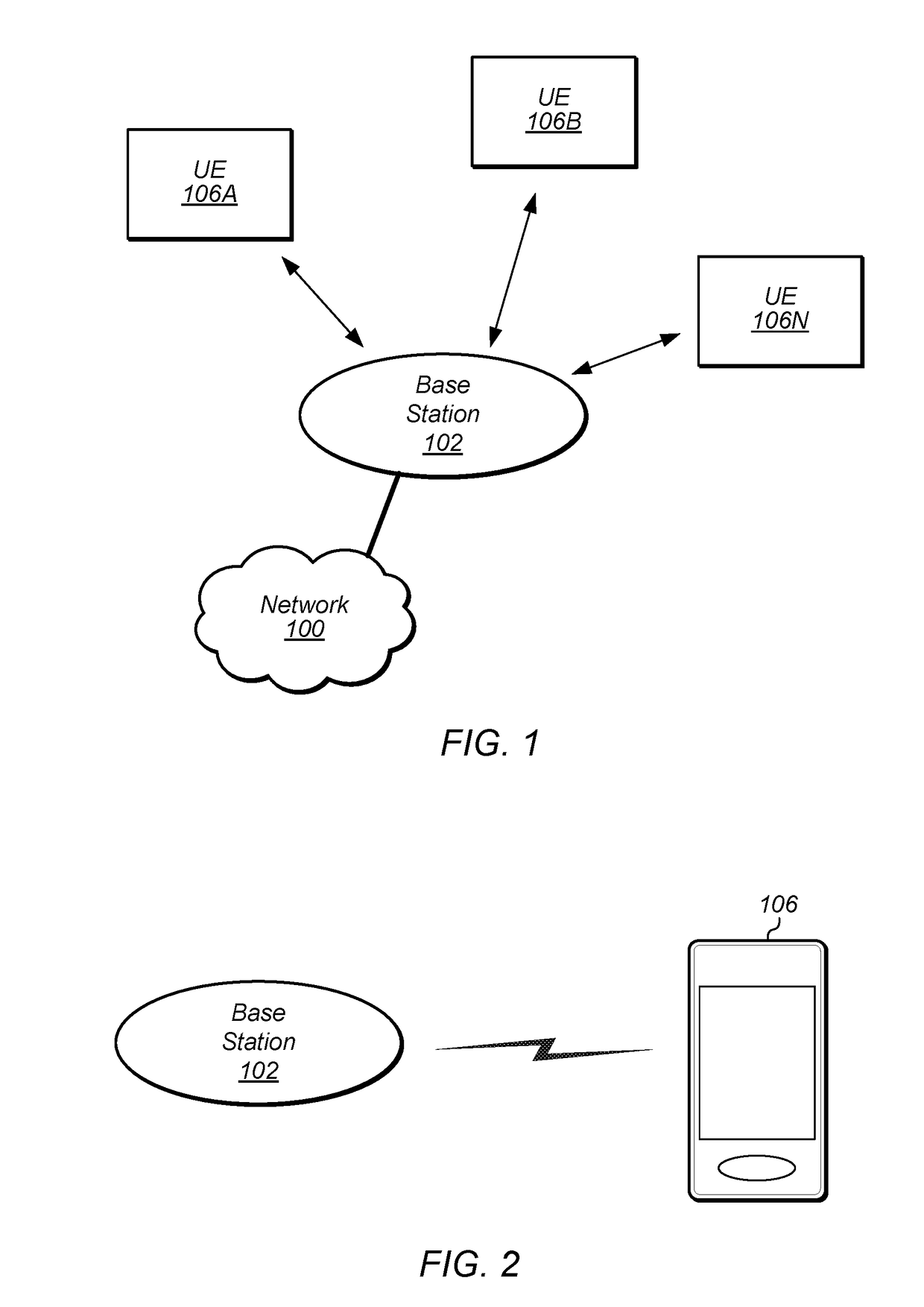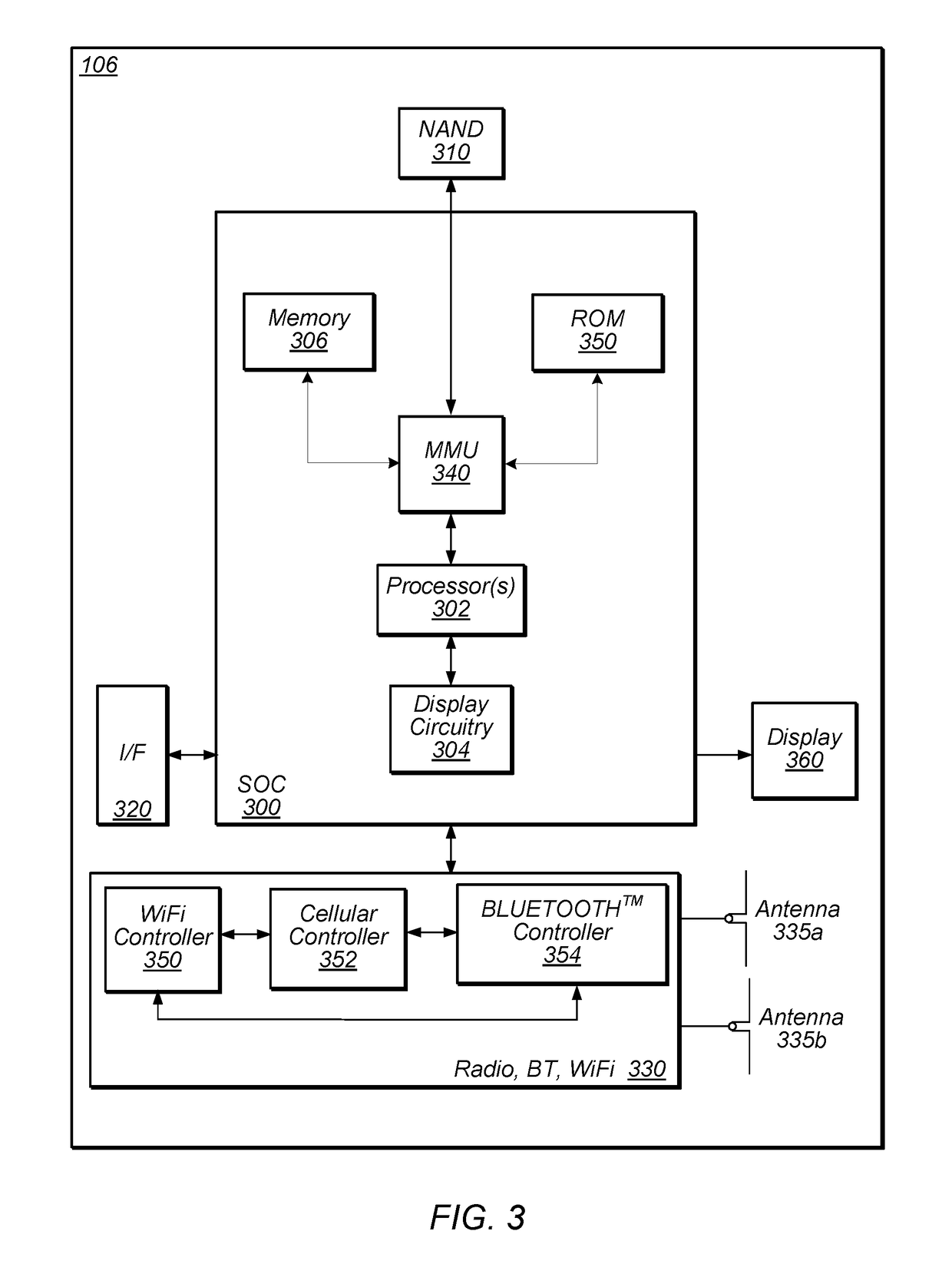License Assisted Access Communication with Dynamic Use of Request-to-Send and Clear-to-Send Messages
a technology of request-to-send and clear-to-send messages, which is applied in the field of wireless communication, can solve the problems of avoiding either, avoiding the gap between successful completion of lbt, and uncertain timing at which the shared medium becomes available to a device performing a lbt procedure, so as to improve the efficiency and effectiveness of communication, and reduce the likelihood of collision
- Summary
- Abstract
- Description
- Claims
- Application Information
AI Technical Summary
Benefits of technology
Problems solved by technology
Method used
Image
Examples
Embodiment Construction
Acronyms
[0024]Various acronyms are used throughout the present application. Definitions of the most prominently used acronyms that may appear throughout the present application are provided below:[0025]UE: User Equipment[0026]RF: Radio Frequency[0027]BS: Base Station[0028]GSM: Global System for Mobile Communication[0029]UMTS: Universal Mobile Telecommunication System[0030]LTE: Long Term Evolution[0031]LTE-U: LTE-Unlicensed[0032]LAA: Licensed Assisted Access[0033]TDD: Time Division Duplex[0034]FDD: Frequency Division Duplex[0035]TX: Transmission / Transmit[0036]RX: Reception / Receive[0037]LAN: Local Area Network[0038]WLAN: Wireless LAN[0039]LBT: Listen-Before-Talk[0040]AP: Access Point[0041]RAT: Radio Access Technology[0042]IEEE: Institute of Electrical and Electronics Engineers[0043]Wi-Fi: Wireless Local Area Network (WLAN) RAT based on the IEEE 802.11 standards
Terms
[0044]The following is a glossary of terms that may appear in the present application:
[0045]Memory Medium—Any of various ...
PUM
 Login to View More
Login to View More Abstract
Description
Claims
Application Information
 Login to View More
Login to View More - R&D
- Intellectual Property
- Life Sciences
- Materials
- Tech Scout
- Unparalleled Data Quality
- Higher Quality Content
- 60% Fewer Hallucinations
Browse by: Latest US Patents, China's latest patents, Technical Efficacy Thesaurus, Application Domain, Technology Topic, Popular Technical Reports.
© 2025 PatSnap. All rights reserved.Legal|Privacy policy|Modern Slavery Act Transparency Statement|Sitemap|About US| Contact US: help@patsnap.com



